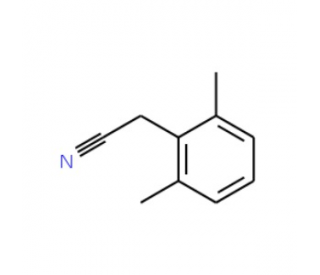详细说明
Species Reactivity
Human
Specificity
Detects human ATG4A in direct ELISAs and Western blots. In direct ELISAs and Western blots, less than 1% cross-reactivity with recombinant human ATG4GB is observed.
Source
Polyclonal Sheep IgG
Purification
Antigen Affinity-purified
Immunogen
S. frugiperda insect ovarian cell line Sf 21-derived recombinant human ATG4A
Glu2-Val398
Accession # Q8WYN0Formulation
Lyophilized from a 0.2 μm filtered solution in PBS with Trehalose. *Small pack size (SP) is supplied as a 0.2 µm filtered solution in PBS.
Label
Unconjugated
Applications
Recommended
ConcentrationSample
Western Blot
1 µg/mL
See below
Immunoprecipitation
25 µg/mL
Conditioned cell culture medium spiked with Recombinant Human ATG4A,
Please Note: Optimal dilutions should be determined by each laboratory for each application. are available in the Technical Information section on our website.
Data Examples
Western Blot | Detection of Human ATG4A by Western Blot. Western blot shows lysates of HUVEC human umbilical vein endothelial cells, MCF‑7 human breast cancer cell line, and human skeletal muscle tissue. PVDF membrane was probed with 1 µg/mL of Sheep Anti-Human ATG4A Antigen Affinity-purified Polyclonal Antibody (Catalog # AF4324) followed by HRP-conjugated Anti-Sheep IgG Secondary Antibody (Catalog # ). A specific band was detected for ATG4A at approximately 48 kDa (as indicated). This experiment was conducted under reducing conditions and using . |
Preparation and Storage
Reconstitution
Reconstitute at 0.2 mg/mL in sterile PBS.
Shipping
The product is shipped at ambient temperature. Upon receipt, store it immediately at the temperature recommended below. *Small pack size (SP) is shipped with polar packs. Upon receipt, store it immediately at -20 to -70 °C
Stability & Storage
Use a manual defrost freezer and avoid repeated freeze-thaw cycles.
12 months from date of receipt, -20 to -70 °C as supplied.
1 month, 2 to 8 °C under sterile conditions after reconstitution.
6 months, -20 to -70 °C under sterile conditions after reconstitution.
Background: ATG4A
ATG4A (Autophagy related protein 4 homolog A; also Autophagin 2) is a 50 kDa cytosolic cysteine protease mostly found in skeletal muscle and brain. It belongs to the Autophagin protein family which is involved in autophagy, a biological process in which endogenous protein and damaged organelles are destroyed. There is a potential for multiple splice forms, namely isoform 1, isoform 2, and isoform 3. Human ATG4A shares 92% and 94% aa sequence identity with mouse and canine ATG4A, respectively.
Long Name:
ATG4 Autophagy Related 4 Homolog A
Entrez Gene IDs:
115201 (Human); 666468 (Mouse)
Alternate Names:
APG4 autophagy 4 homolog A (S. cerevisiae); Apg4a; ATG4 autophagy related 4 homolog A (S. cerevisiae); ATG4A; Atg4al; Autl2; AUT-like 2 cysteine endopeptidase; AUT-like 2, cysteine endopeptidase (S. cerevisiae); Autophagin 2; autophagin-2; cysteine endopeptidase; cysteine protease ATG4A; EC 3.4.22; EC 3.4.22.-; hAPG4A











 粤公网安备44196802000105号
粤公网安备44196802000105号